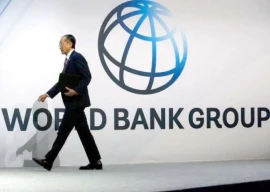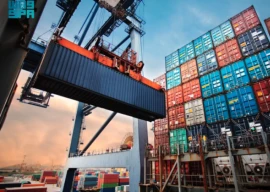
Buyon.pk was among five start-ups that were invited by e-commerce giant Alibaba to China for the second eFounders Fellowship, a joint initiative of the United Nations Conference on Trade and Development (Unctad) and Alibaba Business School to train 1,000 entrepreneurs in developing countries.
The start-up is hopeful, but is struggling for economies of scale, which is the strength of its host – Alibaba. But it is not alone as all e-commerce marketplaces, even bigger ones like Daraz and Yayvo, are facing the challenge.
“The central issue for Pakistan’s e-commerce sector is the industry’s inability to truly scale and cope with challenges like quality control, logistics, inventory management, traditional vendors with legacy systems and an overall trust deficit,” said a research on e-commerce conducted by invest2innovate (i2i) in 2017.
Industry experts differ on the size of e-commerce in Pakistan as the country has no proper means to collect authentic data.
“Pakistan’s e-commerce is worth about $650 million,” said Bramerz.com Co-founder Badar Khushnood while Adam Dawood of Yayvo said it had already crossed $1 billion, which was earlier projected to be reached in 2020. Whatever the number, one thing is for sure that the market has the potential as it has about 40 million internet users with per capita expenditure of $0.55 on internet.
“We are a country ripe for opportunity and e-commerce players like Daraz.pk, Shopistan and FoodPanda showcase the appetite for online platforms and solutions,” said the research.
However, the research revealed that, with the potential, the market was encountering many challenges and the biggest challenge was trust deficit between e-commerce marketplaces and consumers.
Lack of inventory
The first reason behind this trust deficit is that all e-commerce players don’t keep their own inventory, instead they have adopted a light or zero inventory model. It depends on vendors whether they want to provide quality goods or not.
“Dealing with vendors is a big issue and keeping inventory needs a lot of investment,” said Buyon.pk Co-founder Anum Kamran.
Alibaba, which has acquired Daraz.pk, is making necessary arrangements to keep its own inventory, which is not possible for many online marketplaces. The Chinese giant, according to market sources, is in talks with different logistics companies to have one its own system to ensure smooth deliveries. It has also bought 54% stake in Telenor Microfinance Bank, which runs Easypaisa payment and money transfer system, to provide payment convenience, which is another hurdle in the way of Pakistan’s e-commerce industry.
Customers use e-commerce platforms to compare prices and still prefer product purchases offline.
Urbanisation rate in Sindh follows national trend
When the early online players struck deals with random vendors, they had no system in place to control quality of goods. But now they have come up with some solutions that need a great deal of improvement.
Initially, the marketplace received many complaints about the products delivered to customers, Kamran said, adding “we lost even our commission” as cash control was in the hands of vendors. Now, it has decided to control cash and pay vendors after the order is delivered. It has also asked the vendors to put realistic pictures on websites instead of pictures of models in order to ensure transparency in dealings.
Others have set a point-scoring system or invited reviews from customers to deal with the vendors.
Economies of scale
Vendors, on the other hand, are managing their inventories through traditional systems like registering goods in handwritten inventory journals and they may not have the required information readily available.
Economies of scale can be achieved at an accelerated pace in Pakistan. Its middle class is more densely concentrated than India’s and its homogenous taxation and regulatory environment mean companies can expand across the country without having to navigate conflicting and complex inter-state regulations, according to i2i research.
But there are other problems like illiteracy and low purchasing power as most websites are in English medium of instructions whereas half of the population, which Buyon.pk is targeting, has trouble reading even Urdu, let alone English.Previously, customers of food businesses used to place their orders for delivery through phone calls in Pakistan and now they have grown into a successful segment of online market.
There is a dearth of trained staff for these marketplaces and they require training from the scratch.
Half of rural population in Pakistan still lack access to electricity, reveals report
Market players should adopt the strategy of the packaged milk industry that in 1990 launched a unified marketing campaign to create demand for Tetra Pak milk against open milk before starting competition among them.
A unified campaign could go a long way in developing the market until 2020, when 90% of Pakistanis will have access to 3G mobile services (80% to 4G), according to the i2i research.
Based on research and extensive interviews, it would be most beneficial for new players looking to enter the e-commerce arena not to launch yet another platform, but instead focus on becoming the turnkey solution provider for existing players.
Population rising at an alarming rate: Sanjrani
Efforts should be made to potentially provide additional value-added services such as data analytics, standardised Application Programming Interfaces (APIs), and invest in sophisticated mapping and delivery algorithms that can make Pakistani supply chain more efficient, the research added.
the writer is a staff correspondent
Published in The Express Tribune, June 4th, 2018.
Like Business on Facebook, follow @TribuneBiz on Twitter to stay informed and join in the conversation.




1732003896-0/Zendaya-(1)1732003896-0-165x106.webp)












COMMENTS
Comments are moderated and generally will be posted if they are on-topic and not abusive.
For more information, please see our Comments FAQ